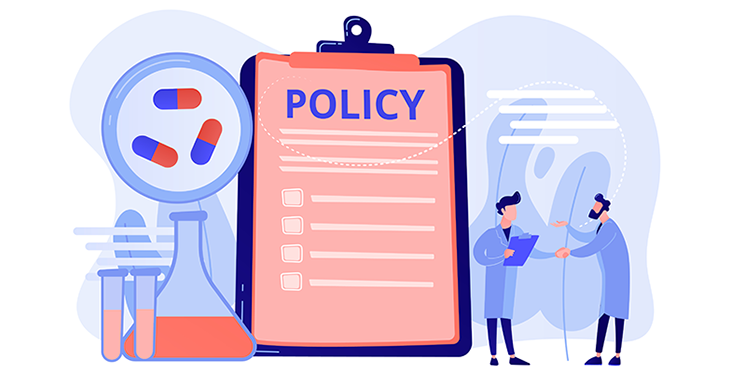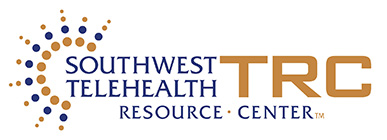
With contributions from Michael Holcomb, and Tara Sklar, JD MPH
Public comment opportunity open until March 18, 2025, at 11:59 PM EDT.
Overview
On January 17, 2025, the Drug Enforcement Administration (DEA) proposed a new telemedicine regulation, entitled Special Registrations for Telemedicine and Limited State Telemedicine Registrations, that impact healthcare practitioners, telemedicine platforms, and patients. Key elements of the proposed rule include the introduction of a three-tiered special registration system, new state registration requirements for prescribing controlled substances, increased reporting and recordkeeping obligations, and updated controls on Schedule II substances. This proposed rule, once finalized and effective, will require that providers practicing via telemedicine and telemedicine platforms update their workflows accordingly. For the first time, the DEA has proposed implementing a special registration process to establish a regulated framework for telemedicine prescribing of controlled substances.
Background and Context
Under the Ryan Haight Online Pharmacy Consumer Protection Act of 2008, prescribing controlled substances via telemedicine typically requires an in-person evaluation, with an exception for a "special registration" process. During the COVID-19 pandemic, the DEA temporarily waived the in-person evaluation requirement for prescribing controlled substances via telemedicine. These emergency measures, introduced in March 2020, have been extended through December 31, 2025.
In February 2023, the DEA and the Substance Abuse and Mental Health Services Administration proposed telemedicine prescribing rules for the first time and received over 38,000 public comments in response. Additionally, the DEA hosted public listening sessions to gather further input from stakeholders.
Some Key Provisions of the Proposed Rule
Three-Tiered Special Registration System
- Telemedicine Prescribing Registration (Schedules III-V):
Enables physicians, nurse practitioners, and other mid-level practitioners, as defined under 21 C.F.R. § 1300.01, to prescribe Schedule III-V controlled substances via telemedicine when a legitimate need is demonstrated, such as when in-person examinations will impose a significant burden on patients (e.g., those in remote locations or during severe weather conditions). - Advanced Telemedicine Prescribing Registration (Schedules II-V):
Grants specialized practitioners, such as psychiatrists and neurologists, the ability to prescribe Schedule II-V substances in cases of compelling need. These cases include treating vulnerable populations who face significant barriers to accessing care or managing debilitating or terminal illnesses. Practitioners must provide a clear, documented rationale for prescribing Schedule II medications, and are required to submit proof of their specialized training as part of their Special Registration application. - Telemedicine Platform Registration (Schedules II-V):
This registration permits eligible online telemedicine platforms to dispense Schedule II-V controlled substances via practitioners who hold a Telemedicine Prescribing Registration or an Advanced Telemedicine Prescribing Registration. To qualify, these platforms must demonstrate a legitimate need for the registration.
A legitimate need is established when the platform delivers essential telemedicine services that connect patients with practitioners for the diagnosis, treatment, and prescription of controlled substances. Additionally, the platform must comply with all federal and state regulations, actively monitor and oversee the prescribing practices of its practitioners, and implement comprehensive safeguards to ensure patient safety while preventing the diversion, misuse, or abuse of controlled substances. As part of the Special Registration application, platform practitioners must attest to their legitimate need.
State Telemedicine Registrations
The proposed rule introduces a streamlined State Telemedicine Registration designed to simplify the process for telemedicine practitioners and platforms to operate across state lines while ensuring regulatory compliance. Under this rule, registrants are required to obtain a State Telemedicine Registration for each state in which they prescribe or dispense controlled substances.
The registration process is tailored to different categories of practitioners, with fees varying based on the type of registrant. Individual clinicians will be required to pay $50 per state, while telemedicine platforms face higher fees of $888 per state.
Recordkeeping and Reporting Requirements
Practitioners will be required to maintain detailed records of telemedicine encounters, including patient identification verification and clinician credentialing. Additionally, pharmacies dispensing prescriptions under a Special Registration will be subject to reporting requirements.
Controls on Schedule II Medications
- Eligibility is limited to specialized physicians and board-certified mid-level practitioners operating under the following specific circumstances or practice areas:
- Psychiatrists;
- Hospice care physicians;
- Palliative care physicians;
- Practitioners rendering treatment at long-term care facilities;
- Pediatricians;
- Neurologists; and
- Mid-level practitioners and physicians from other specialties who are board certified in the treatment of psychiatric or psychological disorders, hospice care, palliative care, pediatric care, or neurological disorders unrelated to the treatment and management of pain.
- Clinicians must be physically located in the same state as their patients to prescribe Schedule II medications.
- Telemedicine and non-telemedicine prescriptions for Schedule II substances must make up less than 50% of a clinician’s total Schedule II prescriptions. For example, if a practitioner writes 100 Schedule II prescriptions in a month, no more than 49 of them can be issued via telemedicine.
The Use of Audio-Only Telemedicine
Practitioners will be authorized to prescribe Schedule III-V controlled substances approved by the U.S. Food and Drug Administration (FDA) for the treatment of opioid use disorder via telemedicine, including buprenorphine, through audio-only visits. However, audio-only consultations will only be permitted if the practitioner has access to audio-video capabilities, but the patient is either unable to utilize video or declines to consent to its use. Importantly, treatment must first be initiated through an audio-video visit, during which the practitioner conducts at least one comprehensive medical examination of the patient.
National Prescription Drug Monitoring Program (PDMP):
If the proposed rule is finalized, practitioners will be required to review Prescription Drug Monitoring Program (PDMP) databases for all patients receiving prescriptions for controlled substances. The PDMP check must include data from the state where the patient resides, the state where the practitioner is providing care, and any U.S. jurisdictions that have PDMP reciprocity agreements with either state. Practitioners must review records from the past year, or if such data is unavailable, the most recent information available in the system.
Additionally, starting three years after the final rule takes effect, practitioners will be required to conduct nationwide PDMP checks. It is important to note that a national PDMP database does not currently exist but its creation is mandated in the proposed rule.
Potential Impacts
Healthcare Practitioners and Telemedicine Platforms
- Practitioners holding a Special Registration will still be required to secure a DEA registration for each state in which they prescribe or dispense controlled substances. However, the proposed rule introduces an alternative: a streamlined State Telemedicine Registration designed specifically for telemedicine practices.
- Special Registration numbers will feature a distinct format, enabling pharmacists to differentiate between practitioners operating under a Special Registration and those with a traditional DEA registration.
- Practitioners holding Special Registrations must be physically located within the United States when prescribing controlled substances via telemedicine. They must also adhere to all applicable state laws and regulations governing the prescribing of controlled substances.
- Video consultations are mandatory for most controlled substance prescriptions except those as outlined above.
- Practitioners must use a two-factor authentication credential to electronically sign prescriptions for controlled substances.
- Practitioners must visually confirm a patient's identity in real-time and maintain a photographic record of each patient's photo ID.
Telemedicine Industry
- Increased regulation and oversight of telemedicine platforms facilitating controlled substance prescribing.
- Business models may need to be adapted to meet compliance standards, especially for direct-to-consumer services.
- The return of Ryan Haight Act requirements for in-person evaluations reduces flexibility compared to pandemic-era rules.
Patients
- Individuals may need to undergo an in-person evaluation before gaining access to prescribed medications.
- In-person evaluation requirements could necessitate long-distance travel for some patients, which may involve logistical and financial considerations.
- Patients managing conditions such as ADHD, anxiety, chronic pain, or opioid use disorder through telemedicine could experience changes in care access and delivery timelines if their provider is unable to register under the new system.
- The introduction of State Telemedicine Registrations may require providers to adjust their telehealth services based on administrative and financial considerations.
Public Feedback During the Comment Period
Public comments about proposed rules play a crucial role as they may inform the DEA of valuable insights into how the rules will directly impact patients, providers, and other healthcare stakeholders, such as recommendations for implementation, including appropriate timeframes for adopting new requirements. After the public comment period ends, the DEA will have the opportunity to consider and address the comments, and to revise and/or finetune the rules before finalizing them.
By staying informed and participating in these public discussions, healthcare professionals, organizations, and patients can contribute to their voices to potentially shaping policies that impact telemedicine as a tool for improving healthcare delivery and access.
To submit public comments electronically:
- Go to https://www.federalregister.gov/documents/2025/01/17/2025-01099/special-registrations-for-telemedicine-and-limited-state-telemedicine-registrations
- Select the Public Comments button then click Submit a public comment.
- Type your Comments in the required field.
- Provide the required information.
- Select Submit Comment.
- Follow the ‘‘Submit a comment’’ instructions.
Heart of the Matter
If implemented as currently proposed, the new DEA rule provides Special Registration processes that will offer practitioners new methods, compared to current practices, to prescribe controlled substances via telemedicine that includes increased controls intended to limit diversion of controlled substances.
Telemedicine and healthcare stakeholders have an opportunity to contribute their perspectives via the public comment process to ensure their voices about this significant rulemaking are heard.


